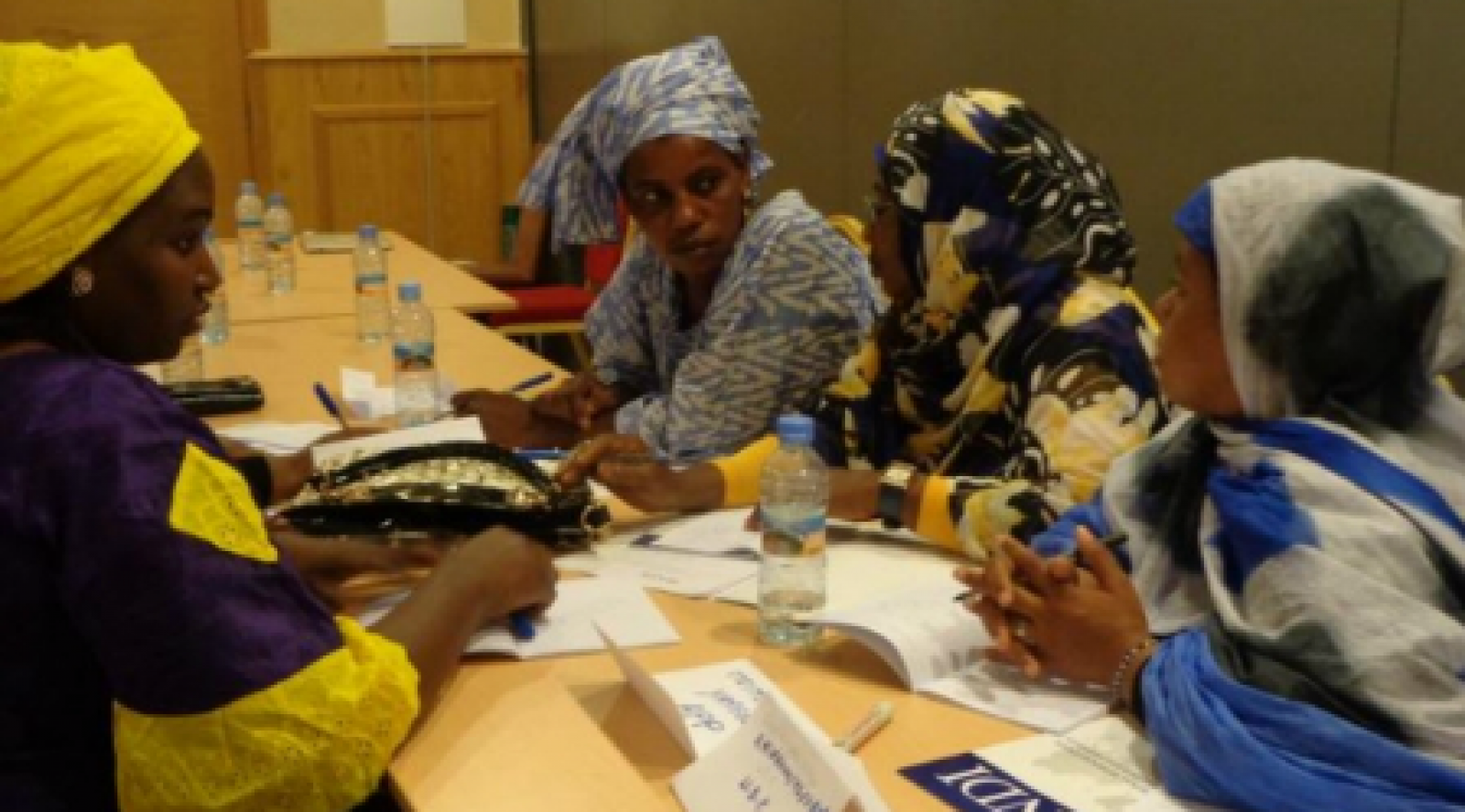
SHARE
Over the last several decades, Mauritania, a large desert nation on Africa’s west coast, has experienced frequent coups d’état and political deadlock.
Mauritania’s current president, Mohamed Ould Abdel Aziz, ousted the country’s first democratically elected president in 2008 and has won subsequent presidential elections since 2009. The 2013 parliamentary elections and the 2014 presidential election did little to heal the country’s long-simmering political tensions, as parties failed to agree on conditions necessary for the successful conduct of elections.
In this challenging political climate, Mauritanian political parties have struggled to connect with citizens, articulate clear policies and engage important constituencies, including women and young people. But for the first time since the 2008 coup, NDI is providing direct assistance to Mauritanian political parties.
In May, NDI launched a program to help Mauritanian political parties develop stronger connections to the public and mount competitive electoral campaigns, and equip women parliamentarians with the skills and experience to advocate for greater responsibility within their parties.
NDI’s inaugural workshop convened participants from all major parties from across the political spectrum, including those in power and in the opposition. Attendees put aside their political differences to focus on building communications skills and developing strategies for women to be more involved in the political process.
Julian Scola, a communications expert with experience working for political parties in the European Parliament, created a fictional “Vegetarian Party,” to allow participants to practice their skills in a neutral setting. Party members worked in mixed groups to develop a communication strategy for the Vegetarian Party, including defining the party’s vision, mission and priorities; identifying the groups it would target; developing a message; choosing appropriate communications tools; and drafting press releases. Each group tried to persuade the others to vote for its approach.
Scola admitted the difficulty with creating a communications strategy in the abstract, but he also didn’t want to touch on issues that would stir up political arguments among the parties. “The fictional ‘Vegetarian Party’ turned out to be the perfect vehicle because everyone could grasp the idea and understand the challenges of communicating in a political sense, without touching on real political conflicts,” he said. “It was great to see people work together for a common purpose.”
 Mauritanian political party members pose with trainer Julian Scola (center)
Mauritanian political party members pose with trainer Julian Scola (center)In a concurrent workshop led by Lesia Radelicki, an advisor on women and gender for the Party of European Socialists, women political party members identified concrete action steps to increase women’s participation and take on greater leadership roles within their parties.
“Simply aiming to increase women’s representation is not enough,” Radelicki said. “Women politicians need to identify policies that can benefit all women and then pursue those policies once in office.” She added, however, that politically engaged women “are not alone in this and should take stock of the work done by solid and united women’s civil society organizations.”
Participants were enthusiastic about the tools and concepts introduced. “The training we just went through strongly clarified our choices in political communication,” said one participant. “These training initiatives help equip political parties with the tools, techniques and approaches to become real actors of change and social transformation.”
Program graduates now face the challenge of incorporating the lessons learned into the operations of their parties. Moving forward, NDI will continue to provide support in the form of customized consultations tailored to each party’s needs, resources and priorities.
The program was supported by the National Endowment for Democracy.
Published on July 16, 2015


